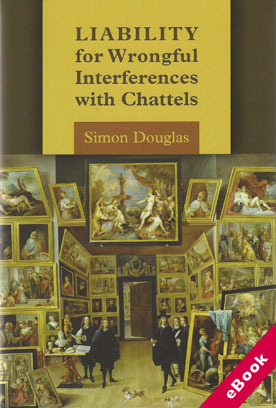
The device(s) you use to access the eBook content must be authorized with an Adobe ID before you download the product otherwise it will fail to register correctly.
For further information see https://www.wildy.com/ebook-formats
Once the order is confirmed an automated e-mail will be sent to you to allow you to download the eBook.
All eBooks are supplied firm sale and cannot be returned. If you believe there is a fault with your eBook then contact us on ebooks@wildy.com and we will help in resolving the issue. This does not affect your statutory rights.
The book examines the protection of property rights in chattels through the law of torts, focusing on the four actions of conversion, detinue, trespass and negligence. Traditionally these actions have been governed by arcane divisions which have led to unnecessary complexity and arbitrariness.
The principal argument made in the book is that significant developments in the modern law point towards abolition of these arcane divisions and permit the chattel torts to be understood by reference to a coherent and justifiable structure.
It is argued that the only division which should be drawn in the modern chattel torts is between intentional interferences with chattels, where liability is strict, and unintentional interferences with chattels, where liability is fault based.
In order to demonstrate this structure it is first argued that the actions of conversion, detinue and trespass amount, in substance, to a single cause of action which imposes strict liability for the intentional interference with another's chattel.
It is then argued that the tort of negligence recognises a fault based cause of action for the unintentional interference with another's chattel. It is further argued that this basic structure, unlike the arcane divisions which have traditionally governed this area of law, can be justified and can be exported to other areas of tort law.